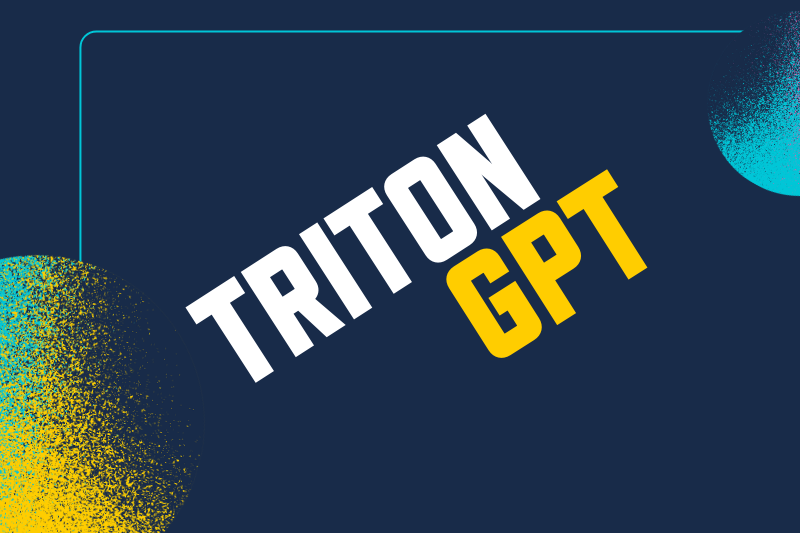By Shannon Prior, UC San Diego. TritonGPT is a testament to innovation at UC San Diego, developed by a dedicated team of student engineers. This suite of AI Assistants is not just another technological advancement; it’s specifically tailored to meet the unique needs of the university community. TritonGPT excels in handling university-specific queries, creating customized content, and summarizing extensive documents, all while ensuring a high degree of relevance and precision. The tool is powered by Meta Llama 3, a dialogue-optimized, open-source large language model, and operates securely from the San Diego Supercomputer Center. This on-premises hosting setup guarantees UC San Diego’s complete control over data handling and privacy.
The inception of TritonGPT was sparked by student curiosity and initiative. IT Services student employees Bradley Grace and Edwin Ruiz, who are lead float engineers, along with Matthew Holland and Hanzen Shou, who serve as float engineers at UC San Diego, have played pivotal roles in the development of TritonGPT.
Each team member brought unique skills to the table: Bradley Grace led efforts in integrating core functionalities and enhancing the AI’s user experience, focusing on the sophisticated tuning of AI models to meet specific administrative needs and streamlining the development process.
Meanwhile, Edwin Ruiz joined the team to manage crucial integrations like Single Sign-On (SSO), further enhancing the platform’s usability and security.
Matthew Holland initiated the project, inspired by his discovery of the Danswer AI project, and contributed significantly to its early development, ensuring alignment with the university’s efficiency goals.
Hanzen Shou concentrated on the security and ethical dimensions, implementing robust measures to keep the platform compliant with data privacy standards and ensuring safe, productive AI interactions tailored to the campus community’s needs.
Together, their diverse skill sets have been crucial in shaping TritonGPT into a valuable tool for UC San Diego.
However, the development of TritonGPT brought its share of challenges. Grace recalls, “There have been various challenges with deploying a new application like this, including code management and AI model prompt tuning. Additionally, each Assistant within the application has introduced its own unique set of challenges.” These difficulties set the stage for a robust learning and adaptation process that ultimately strengthened the project.
Building on these experiences, the involvement of students in the early adoption phase of TritonGPT provided crucial insights. According to Grace, “We’ve seen a lot of interest in TritonGPT from staff and students alike, and we are still only scratching the surface of what is possible with its rollout.”
This feedback loop has been vital in tailoring TritonGPT to better meet the needs of the campus community, thus ensuring that the tool evolves in response to real-world use and feedback.
With a strong focus on data security, the student team ensured that TritonGPT upheld the highest standards of data integrity. Grace emphasizes, “As a fully self-hosted application, data never leaves UC San Diego’s networks, providing a secure environment for our users.”
Looking forward, the team is excited about future enhancements that will expand TritonGPT’s capabilities, continually driven by student-led innovation and foresight.
Working on TritonGPT has been an enriching experience for the students involved, full of learning opportunities and personal growth. Grace advises aspiring student developers: “Create an open-source application, tinker with technologies, stay informed, and contribute to the AI community.”
Shou adds, “Start early and often! Focus on having fun, doing what you can, and avoid getting overwhelmed.”
“I’m thrilled to see the impact that TritonGPT is having so far,” said Brett Pollak, Senior Director of Workplace Technology Services. “The innovation and dedication of our student developers is truly inspiring. They are at the forefront of both technical AI innovations and creative ideation on how to harness its potential for our campus community.”
Through the lens of its student developers, TritonGPT stands as a testament to the impact of student involvement in university-level projects and heralds a future where AI becomes an integral part of learning and administration at UC San Diego. This project showcases the profound potential of student-led initiatives in shaping educational technologies and inspiring the next generation of innovators.
Author
Shannon Prior
Communications Specialist
UC San Diego







